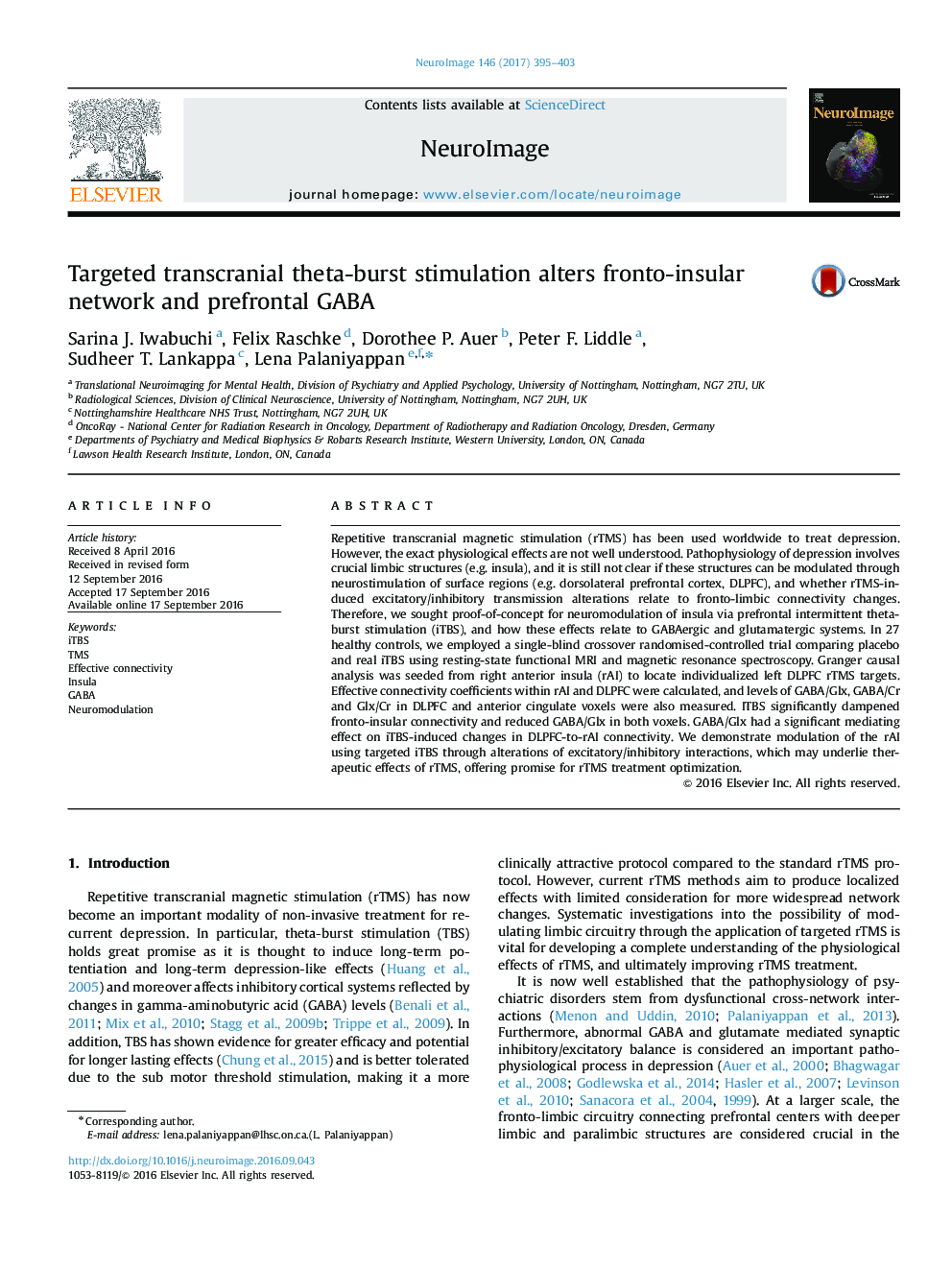| Article ID | Journal | Published Year | Pages | File Type |
|---|---|---|---|---|
| 5631350 | NeuroImage | 2017 | 9 Pages |
â¢Targeted prefrontal rTMS alters fronto-insular effective connectivity.â¢Prefrontal GABA levels can be manipulated using theta-burst rTMS.â¢Excitatory/inhibitory transmission alterations relate to connectivity changes.â¢Targeted rTMS can modulate key deep brain structures such as the insula.
Repetitive transcranial magnetic stimulation (rTMS) has been used worldwide to treat depression. However, the exact physiological effects are not well understood. Pathophysiology of depression involves crucial limbic structures (e.g. insula), and it is still not clear if these structures can be modulated through neurostimulation of surface regions (e.g. dorsolateral prefrontal cortex, DLPFC), and whether rTMS-induced excitatory/inhibitory transmission alterations relate to fronto-limbic connectivity changes. Therefore, we sought proof-of-concept for neuromodulation of insula via prefrontal intermittent theta-burst stimulation (iTBS), and how these effects relate to GABAergic and glutamatergic systems. In 27 healthy controls, we employed a single-blind crossover randomised-controlled trial comparing placebo and real iTBS using resting-state functional MRI and magnetic resonance spectroscopy. Granger causal analysis was seeded from right anterior insula (rAI) to locate individualized left DLPFC rTMS targets. Effective connectivity coefficients within rAI and DLPFC were calculated, and levels of GABA/Glx, GABA/Cr and Glx/Cr in DLPFC and anterior cingulate voxels were also measured. ITBS significantly dampened fronto-insular connectivity and reduced GABA/Glx in both voxels. GABA/Glx had a significant mediating effect on iTBS-induced changes in DLPFC-to-rAI connectivity. We demonstrate modulation of the rAI using targeted iTBS through alterations of excitatory/inhibitory interactions, which may underlie therapeutic effects of rTMS, offering promise for rTMS treatment optimization.
